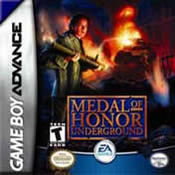

Alternatively, you can shoot enemies with a silenced pistol when they aren't looking, and if the alarm does get raised, it doesn't mean the mission is over instead, you'll deal with reinforcements until the alarm is shut off or destroyed. On the other hand, Manon will rely on her ID and camera to get past guards. Patterson needs to track down the right papers so he can progress to the next part of the area. A handful of levels see Patterson or Manon going undercover as part of the mission protocol.ĭuring these sections, soldiers will question and request for identification if they get close to them, in which case him or her needs to present their papers. Objectives involve doing things like collecting intel, killing enemy officers, or sabotaging equipment. Levels are complex, but not to the point players will get lost. Miss an objective and get to the end of a level, then it's an instant mission failure and you have to start over. It's best to switch to this layout as the default controls are archaic.Įach stage features different objectives Jimmy Patterson or Manon Batiste must complete. Although dual-analog controls didn't become the norm until the sixth generation of consoles, both PS1 Medal of Honor titles contain such a control scheme tucked away in the options menu. What's most surprising about these two titles is the controls. There is no regenerating health and the main characters can stock up on as many weapons as possible.

This is an old-school shooter through and through. Over the course of both games, you'll infiltrate Nazi bases, occupied cities, traverse sandy deserts and other locales to stop whatever it is the Third Reich has planned. Medal of Honor and Medal of Honor: Underground's action spans across eight missions that are split into three or four smaller sections. It's not every day you get to fight dancing dogs armed with machine guns, followed by exploding Nazi zombies and mechanized nutcracker soldiers. Also, the bonus mission "Panzerknacker Unleashed" contains some of the weirdest stuff ever put into a video game. Medal of Honor: Underground has the more interesting premise since you're playing as a member of the French resistance, so there's a stronger emphasis on stealth and sabotage, more so than its predecessor. The characters may not be real, but the situations they're put into are not. All of the missions are based off actual events, and the cut-scenes which play before and after a level contain tons of archival footage mixed with narration. Playing any of the original Medal of Honor games is like getting a history lesson. Neither of the two games have extensive, deep plots, but the lack of narrative depth is made up for by its respect for the setting. In a bonus mission, Patterson infiltrates a castle where strange activity has been reported along the way, he finds parts for a secret weapon known as the Panzerknacker. Her espionage adventures take her to North Africa, France, and Germany. Medal of Honor: Underground is centered on Manon Batiste, a soldier for the French resistance, who, like Patterson, finds herself taking part in numerous undercover missions for the OSS. Through the OSS, he completes a number of missions intended to halt the Nazi's different schemes, including ones related to the development of a V-2 rocket. Patterson finds himself signing up for the OSS after his heroic actions during D-Day.

Set during World War II, Medal of Honor follows Lieutenant Jimmy Patterson. Ironically, the idea for the original game stemmed from director Steven Spielberg, who at the time had just finished directing Saving Private Ryan, and one can say Medal of Honor and Medal of Honor: Underground are the video game answer to his movie. In the late 90's and into the mid-2000's, first-person shooters set during World War II were all the rage, and leading the charge was Medal of Honor. Media and war history go together since books, movies, and video games tend to re-enact those pivotal moments in time, albeit from the perspective of a fictional character. Learning about the past has fascinated for as long as I can remember, especially war historical periods. I've always had an interest in history, whether it be the history of arts, entertainment, or the world.


 0 kommentar(er)
0 kommentar(er)
